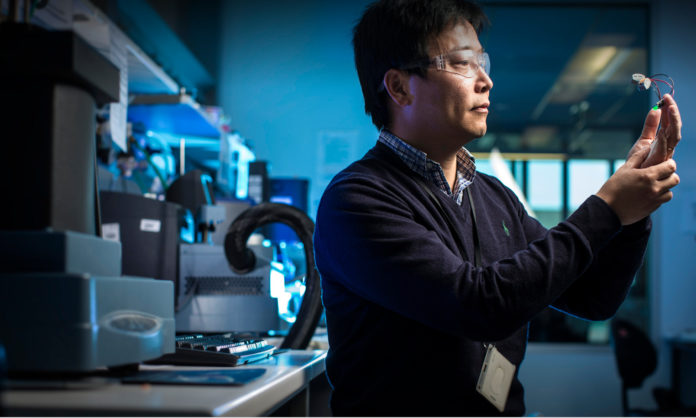Projects led by University of Wollongong (UOW) researchers have been awarded $3.4 million in the latest round of Australian Research Council (ARC) Discovery Projects.
The grants formed part of a total of $258.6 million for 587 new projects over the next five years.
Chief Executive Officer of the Australian Research Council (ARC), Professor Sue Thomas said the funding would support excellent basic and applied research projects and enhance the scale and focus of research in Australian Government priority areas.
“This investment will see expanded knowledge base and research capacity in Australia, and economic, commercial, environmental, social and/or cultural returns for Australia,” she said.
The intended outcomes of the Discovery Projects scheme are to expand the knowledge base and research capacity in Australia, and provide economic, commercial, environmental, social and cultural benefits for Australia.
The latest round has funded eight UOW-led projects, ranging from COVID-19 disruptions to city centre economic geographies to using innovate microscopy techniques to study the biology of proteins.
UOW Deputy Vice-Chancellor (Research and Innovation) Professor Jennifer L Martin AC welcomed the announcement and congratulated the researchers involved.
“Once more, our researchers show that the impact of their work is valued in this highly competitive scheme,” she said.
“The Discovery scheme is specifically assessed on the quality of the researchers, and the significance and benefits of the research to Australia and Australians. I congratulate all recipients.”
UOW-led discovery projects:
Investigating supported molecular catalysts for fuel cell applications.
A team led by Professor Jun Chen (pictured), from the Intelligent Polymer Research Institute, will develop an innovative and sustainable system, which could promote the N2 fixation along with CO2 conversion process. It will thereby contribute to mitigation of greenhouse emissions and create an ecofriendly protocol/technology for distributed production of C-N products under ambient conditions.
Affordable battery storage for renewable energy
This project, led by Professor Shulei Chou, Professorial Research Fellow at the Australian Institute for Innovative Materials, seeks to develop sodium-ion sulfur batteries as a novel technique for large-scale stationary energy storage, especially for intermittent solar and wind energy storage in Australia. Expected outcomes include a breakthrough in affordable battery storage technology, leading to significant benefits by integrating this battery system with renewable energy.
How COVID-19 is changing our cities
The disruptions to city centre economic geographies are the subject of this project led by Professor Chris Gibson, Senior Professor in Human Geography. The team will focus on a bellwether sector—creative work—hard hit by the pandemic yet central to urban economic recovery planning. The project will generate essential new practical knowledge of city centre reconfigurations and networks of creative industries across metropolitan spaces. Its benefits will include vital insights for urban policy to support resilient and inclusive recovery.
Stability for applications in quantum devices.
Associate Professor Adam Rennie, from the School of Mathematics and Applied Sciences, and his team aim to use mathematical scattering theory to find and study new topological features to be used in applications for quantum devices. The results will give topological stability from the scattering spectrum, a feature not previously seen. The benefits stem from new results in mathematical scattering theory with a primary novelty being the analysis of “zero energy resonances” in mathematical models of graphene.
Plumbing the mathematical mystery of fractals and self-similarity
Professor Aidan Sims, from the School of Mathematics and Applied Sciences, will conduct a project in pure mathematics which aims to develop novel mathematical techniques for understanding self-similar structures using operator algebras. Expected outcomes include increased understanding of self-similar structures, and novel operator-algebraic phenomena and examples. Benefits include growing Australia’s capacity in operator algebras and mathematics more generally, and enhanced international collaboration.
Improving the accuracy and security of crowd-sourced data
The goal to enable quality data classification via secure crowdsourcing is the aim of a team led by Professor Willy Susilo, from the School of Computing and Information Technology. The quality of a data-intensive process, such as a Machine Learning algorithm, depends on the input data quality. By using a crowdsourcing classification, the project expects to overcome the painstaking and costly process of humans annotating extensive input data from diverse real information. The project will benefit large data-intensive applications, such as cybersecurity protection.
New ways of improving machine learning
A team lead by Professor Lei Wang, from the School of Computing and Information Technology, will develop novel machine learning techniques to make machines better at using past experience to solve new tasks with fewer data. It expects to reduce the undesirable dependence of current machine learning on labelled data and significantly expand its application scope. This should be able to produce solid benefits to the science, society, and economy of Australian via the application of these advanced intelligent systems.
Using high powered microscopes to study proteins.
Distinguished Professor Antoine van Oijen and his team at Molecular Horizons will study how molecular chaperones work together to keep proteins folded and functional, particularly following cellular stress. This is important as proteins are involved in virtually all biological processes. This project will exploit innovative microscopy techniques to watch these molecular chaperones as they work. This should provide significant benefits including enhanced collaboration and scientific capacity in Australia.


